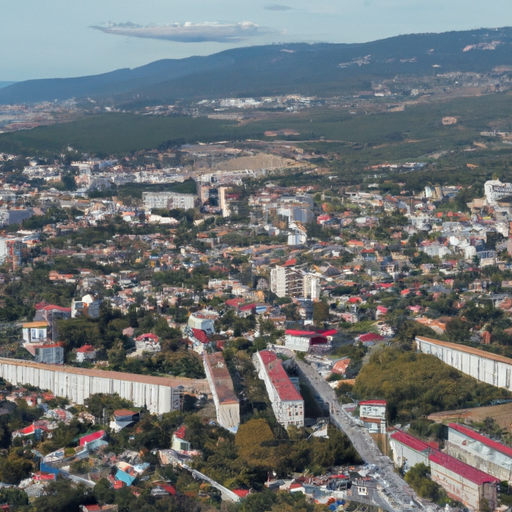Exploring the UNWTO’s Best Tourism Villages: A Solution to Rural Depopulation
Rural depopulation is a global challenge that has been plaguing many communities for years. As younger generations migrate to urban areas in search of better opportunities, rural communities are left with dwindling populations and fading cultural heritage. However, the United Nations World Tourism Organization (UNWTO) has come up with an innovative solution to this problem: the Best Tourism Villages initiative.
The UNWTO’s Best Tourism Villages initiative is a unique approach that aims to revitalise rural communities by promoting them as tourist destinations. The idea is simple yet effective: by attracting tourists, these villages can generate income, create jobs, and ultimately, encourage people to stay or return. But it’s not just about economic benefits. The initiative also seeks to preserve and promote the unique cultural heritage and sustainable practices of these villages, making them attractive not just for tourists, but also for the locals.
So, how does a village become a UNWTO Best Tourism Village? The process is quite rigorous. Villages are evaluated based on several criteria, including their cultural value, sustainability practices, and potential for tourism development. Only those that meet these high standards are recognised as Best Tourism Villages. This recognition not only boosts the village’s reputation but also provides them with support and resources from the UNWTO to further develop their tourism potential.
One of the villages that have benefited from this initiative is Piodão in Portugal. Nestled in the mountains, this picturesque village with its traditional schist houses and narrow streets was facing depopulation. However, after being recognised as a UNWTO Best Tourism Village, Piodão has seen a surge in tourism, which has revitalised the local economy and encouraged younger generations to stay.
Similarly, the village of Nan in Thailand, known for its unique culture and traditional way of life, was also facing the challenge of depopulation. But thanks to the UNWTO’s initiative, Nan has managed to turn things around. Today, it’s a thriving tourist destination that not only attracts visitors from around the world but also provides jobs and opportunities for the locals, helping to stem the tide of outmigration.
But the success of the Best Tourism Villages initiative isn’t just about the economic benefits. It’s also about preserving and promoting the unique cultural heritage of these villages. For instance, in the village of Kibber in India, recognised as a Best Tourism Village, efforts are being made to preserve the traditional architecture and way of life, ensuring that these are not lost in the face of modernisation.
In conclusion, the UNWTO’s Best Tourism Villages initiative is a shining example of how tourism can be harnessed as a force for good. By promoting rural tourism, the initiative not only helps to revitalise rural communities and tackle the challenge of depopulation but also preserves and promotes the unique cultural heritage of these villages. It’s a win-win situation for everyone involved: the villages get a new lease on life, tourists get to experience unique cultures and traditions, and the world gets to preserve its diverse cultural heritage.
Revitalizing Rural Communities: The Role of UNWTO’s Best Tourism Villages

Revitalising rural communities is a challenge that many countries face, especially as urbanisation continues to draw people away from the countryside. However, the United Nations World Tourism Organization (UNWTO) has found a unique solution to this problem through its Best Tourism Villages initiative. This innovative program aims to breathe new life into rural communities by promoting them as tourist destinations, thereby creating jobs and stimulating economic growth.
The UNWTO’s Best Tourism Villages initiative recognises and promotes villages that have successfully leveraged tourism to provide opportunities for communities and preserve their cultural heritage and natural surroundings. The initiative is not just about attracting tourists; it’s about creating sustainable, inclusive growth that benefits everyone in the community.
One of the key ways the initiative tackles the challenge of depopulation is by creating jobs. When a village is recognised as a Best Tourism Village, it often leads to an increase in visitors. This, in turn, creates a demand for services such as accommodation, food and drink, and local guides. As a result, jobs are created, providing a much-needed boost to the local economy. This can help to stem the tide of young people leaving rural areas in search of employment opportunities in cities.
Moreover, the initiative also helps to preserve local culture and traditions. Many of the villages recognised by the UNWTO have unique cultural practices, crafts, or traditions that are integral to their identity. By promoting these villages as tourist destinations, the initiative helps to ensure that these traditions are preserved and passed on to future generations. This not only enriches the tourist experience but also instils a sense of pride in the local community.
The Best Tourism Villages initiative also encourages sustainable practices. Recognised villages are encouraged to adopt sustainable tourism practices that protect their natural environment. This can include everything from reducing waste and conserving water to promoting local biodiversity. By doing so, these villages can ensure that their natural beauty is preserved for future generations to enjoy.
The initiative also fosters a sense of community. When a village is recognised by the UNWTO, it can lead to a renewed sense of pride and community spirit. This can help to strengthen social bonds and improve the overall quality of life in these rural areas.
In conclusion, the UNWTO’s Best Tourism Villages initiative is a powerful tool for revitalising rural communities. By promoting these villages as tourist destinations, the initiative not only helps to create jobs and stimulate economic growth, but it also helps to preserve local culture and traditions, encourage sustainable practices, and foster a sense of community. It’s a holistic approach that tackles the challenge of depopulation from multiple angles, ensuring that these rural communities can thrive for generations to come.
Addressing Depopulation: The Impact of UNWTO’s Best Tourism Villages on Rural Communities
Depopulation in rural areas is a global challenge that has been exacerbated by urbanisation and the search for better economic opportunities in cities. However, the United Nations World Tourism Organization (UNWTO) has been making strides in addressing this issue through its Best Tourism Villages initiative. This innovative program is not only revitalising rural communities but also showcasing the unique charm and potential of these villages to the world.
The UNWTO’s Best Tourism Villages initiative recognises and promotes villages that have successfully leveraged tourism to provide opportunities and safeguard their communities, cultures, and landscapes. The initiative is a testament to the power of tourism as a driver of rural development and a tool to combat depopulation. It’s a win-win situation where tourists get to experience the authentic rural lifestyle, and the local communities benefit from the economic influx and job creation.
One of the key impacts of this initiative is the creation of sustainable jobs. Tourism provides a wide range of employment opportunities, from hospitality and guiding services to local crafts and food production. These jobs not only help to retain the local population but also attract people from other areas, thereby reversing the trend of depopulation. Moreover, these jobs are often rooted in the local culture and environment, which helps to preserve the unique identity of these villages.
Another significant impact is the preservation and promotion of local culture and heritage. The Best Tourism Villages initiative encourages villages to showcase their unique cultural and natural assets, which often become the main attractions for tourists. This not only boosts tourism but also instills a sense of pride among the locals and motivates them to preserve their heritage. In this way, the initiative is helping to keep rural traditions and cultures alive.
The initiative also promotes sustainable development. The UNWTO encourages the Best Tourism Villages to adopt sustainable practices, such as using renewable energy sources, reducing waste, and promoting local products. This not only makes the villages more attractive to eco-conscious tourists but also ensures the long-term sustainability of the communities and their environment.
Furthermore, the initiative fosters community participation and empowerment. The villagers are actively involved in planning and implementing tourism activities, which gives them a sense of ownership and control over their development. This participatory approach not only ensures that the benefits of tourism are equitably distributed but also strengthens the social fabric of the communities.
In conclusion, the UNWTO’s Best Tourism Villages initiative is making a significant impact on rural communities. By harnessing the power of tourism, the initiative is creating jobs, preserving culture and heritage, promoting sustainable development, and empowering communities. It’s a shining example of how tourism can be a force for good, helping to revitalise rural communities and tackle the challenge of depopulation. So, the next time you’re planning a holiday, why not consider visiting one of the UNWTO’s Best Tourism Villages? You’ll not only have a unique and authentic experience but also contribute to the development of these charming rural communities.












